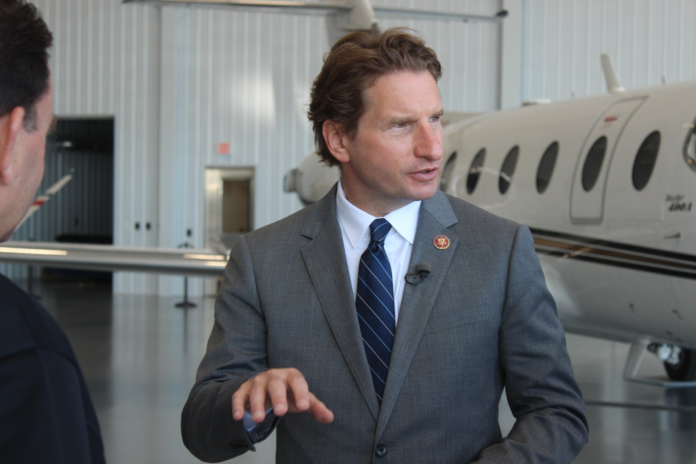Rep. Dean Phillips of Minnesota answered constituent questions on a variety of pressing issues, most notably the U.S.-Mexico border crisis and the Democrats’ $3.5 trillion reconciliation bill, at a town hall Monday night.
Phillips, a Democrat who represents Minnesota’s Third Congressional District, highlighted his commitment to bipartisanship on multiple occasions without shying away from his progressive stances on immigration and government spending.
Speaking about what he saw during a visit to the southern border, Phillips said that although he didn’t see any “acts of horror,” he nevertheless claimed the sights were heartbreaking and called America “a nation of immigrants” that has a duty to help.
“If you’re a human being and you saw what I saw, it would just break your heart, because in every single one of those people crossing the Rio Grande, I saw my great-grandparents. I saw some of yours. I saw some of you,” he said. “Most of us are immigrants, whether you’re first-generation or tenth-generation. Every one of those people, with very, very few exceptions, are coming here for the same reason that our grandmothers and grandfathers came, which is for a better life, more opportunity, and, most of all, safety and security.”
As for what he would do to curb record-high levels of illegal immigration, Phillips said he supports increased border security and more American investment into countries from which the migrants hail.
But he also called for a “path to citizenship” for illegal aliens who are “following the law and working.” This “plan B” proposal, however, was recently rejected for inclusion in the $3.5 trillion reconciliation bill by Senate parliamentarian Elizabeth MacDonough, much like the previous proposal.
Transitioning to the reconciliation bill, Phillips tried to persuade his constituents that $3.5 trillion over 10 years is not an exorbitant amount of money. He cited the fact that the U.S. may have spent around $5 trillion fighting in Iraq and Afghanistan, and that the country currently spends $20 trillion on Social Security and Medicare each decade.
“The proposal is paid for,” he claimed. “Taxes will go up on the highest earners in America, our corporate tax rate would go up a little bit, not anywhere where it was just a few years ago, and it’s paid for.”
The reconciliation bill, which includes the Build Back Better Act, includes funding of free community college for two years, additional Pell Grants, universal pre-K, child care assistance, expansion of Medicare, more child tax credits, and many other provisions.
Another Democratic Minnesota representative, Ilhan Omar, recently argued in support of passing the Build Back Better Act.
“When President Joe Biden announced in the spring his plans for ‘once-in-a-generation investments in our nation’s future,’ he said that ‘it is not enough to restore where we were prior to the pandemic. We need to build a stronger economy that does not leave anyone behind — we need to build back better,'” Omar and two other congresswomen wrote.

















